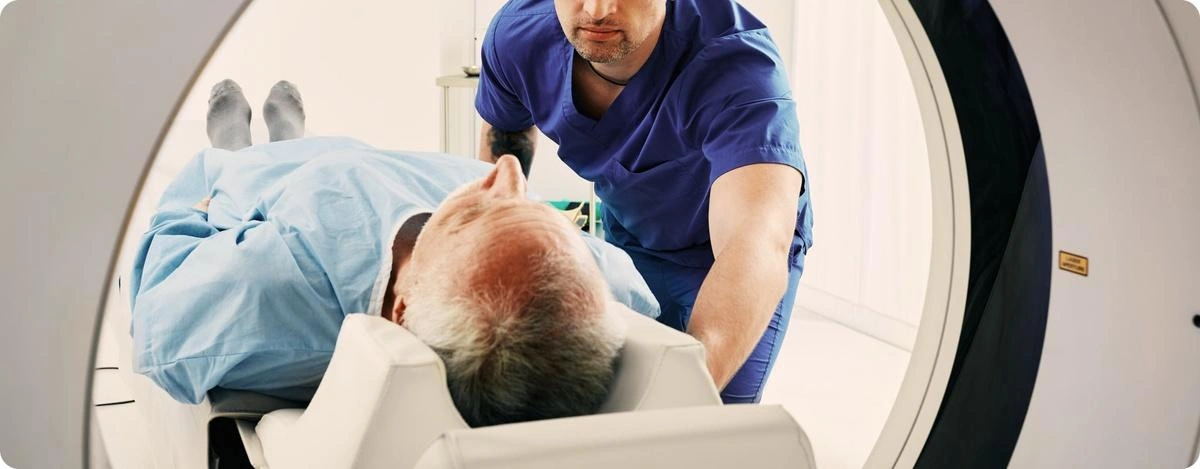Introduction
In today’s fast-paced healthcare landscape, the demand for skilled professionals who can provide high-quality medical imaging services is growing exponentially. Among these professionals, travel radiology techs stand tall, offering their expertise and unwavering commitment to patients nationwide. Becoming a travel radiology tech is not merely a profession; it’s a journey that empowers individuals to make a tangible difference in people’s lives while experiencing new horizons and enriching their own.

Image: zakihub.com
In this comprehensive guide, we’ll delve into the captivating world of travel radiology, exploring the essential steps and challenges one must navigate to embark on this fulfilling career path. We’ll provide up-to-date information, expert advice, and actionable tips to help you pave the way to becoming a sought-after travel radiology tech.
Understanding the Role of a Travel Radiology Tech
Travel radiology techs are licensed healthcare professionals specializing in operating medical imaging equipment, such as X-ray, CT, and MRI scanners, to capture diagnostic images. They play a crucial role in diagnosing and treating various medical conditions by providing clear and accurate images that assist physicians in making informed decisions.
The allure of travel radiology lies in its unique blend of patient care and exploration. Travel techs have the opportunity to work in diverse healthcare settings across the country, gaining invaluable experience and expanding their professional horizons.
Prerequisites: Charting Your Course towards Success
To become a travel radiology tech, you must meet specific prerequisites, which may vary slightly depending on the jurisdiction. However, the foundational requirements typically include:
-
Educational Attainment:
You’ll need to earn an Associate’s or Bachelor’s degree in Radiologic Technology or a related field from an accredited program. These programs provide a comprehensive knowledge base in medical imaging, radiation safety, and patient care.
-
Image: nomadhealth.comCertification:
Upon completing your education, you’ll need to obtain certification from a recognized organization, such as the American Registry of Radiologic Technologists (ARRT) or the Canadian Association of Medical Radiation Technologists (CAMRT). This credential validates your competency and qualifies you to practice as a radiology tech.
-
Experience:
Most travel radiology positions require a minimum number of years of experience in a medical imaging setting. This experience helps you refine your skills, build confidence, and prepare for the unique challenges of travel assignments.
Essential Steps to Embark on Your Travel Radiology Tech Journey
Once you’ve met the prerequisites, you can begin the process of becoming a travel radiology tech:
-
Choose a Reputable Travel Agency:
Partner with a reputable and experienced travel agency that specializes in placing radiology techs. They can provide guidance, job opportunities, and support throughout your journey.
-
Craft a Compelling Resume and Portfolio:
Showcase your skills, experience, and certifications in a well-written resume and portfolio. Highlight your expertise in different modalities and emphasize your patient-centered approach.
-
Secure a Contract and Prepare for Your First Assignment:
After finding suitable job opportunities through your travel agency, carefully review the contracts, including terms, compensation, benefits, and housing arrangements. Once accepted, prepare for your first assignment by gathering necessary equipment and ensuring your credentials are up-to-date.
Benefits and Challenges: Exploring the Ups and Downs of Travel Radiology
The travel radiology tech profession offers many advantages, including:
-
Flexibility and Travel Opportunities:
Experience new destinations, embrace diverse cultures, and expand your professional network as you embark on assignments in various locales.
-
Competitive Compensation and Benefits:
Travel radiology techs typically earn higher salaries compared to their non-traveling counterparts. They also often receive attractive benefits packages, including health insurance, paid time off, and housing stipends.
-
Professional Growth and Career Advancement:
Immerse yourself in different healthcare environments, learn from experienced radiologists and colleagues, and enhance your skills with each assignment.
However, it’s important to acknowledge the challenges associated with travel radiology:
-
Time Away from Home:
Prolonged periods away from family and friends can be emotionally taxing and require strong support systems and resilience.
-
Housing and Accommodation:
Finding suitable housing in unfamiliar cities can be a logistical challenge, and certain locations may offer limited options.
-
Adapting to Different Cultures:
Working in diverse healthcare settings exposes you to different cultures and practices, which can require cultural sensitivity and adaptability.
Expert Insights: Unlocking Success as a Travel Radiology Tech
To succeed as a travel radiology tech, consider these expert insights:
-
Cultivate a Strong Work Ethic and Commitment:
Travel radiology demands a high level of professionalism, dedication, and a willingness to adapt to various settings.
-
Build a Network and Seek Mentorship:
Connect with other travel radiology techs, attend industry events, and seek guidance from experienced mentors to gain valuable insights and support.
-
Embrace Professional Development:
Continuously upgrade your skills through continuing education and staying abreast of the latest advancements in medical imaging.
How To Become A Travel Radiology Tech
A Journey of Fulfillment and Impact
Becoming a travel radiology tech is an enriching journey that offers a unique blend of professional growth, adventure, and the opportunity to make a meaningful impact on people’s lives. By embracing the challenges, leveraging your skills, and navigating the path with determination, you can unlock a fulfilling and rewarding career in the dynamic field of healthcare.
As you embark on this journey, remember the words of Albert Einstein: “Life is like riding a bicycle. To keep your balance, you must keep moving.” Embrace the adventure, stay adaptable, and let your passion for healthcare guide your path.
